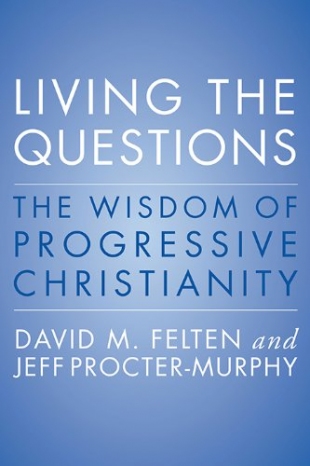"Christianity remains an amazingly diverse enterprise as we enter into the twenty-first century. In contrast to those who preach absolute certainty, there are those who are convinced that there's something more to Christianity than what they've experienced in the past. They are a group of seekers who have a hunch about this Jesus. They are not preoccupied with their own eternal well-being so much as they long to change the world to reflect Jesus's vision of the reign of God.
"These seekers are comfortable with ambiguity and understand that through difficulties, mistakes, and challenges, it's the journey that's important. It's what we learn along the way in relationship to the Divine and to one another that matters most. It takes work as we go down the road, sharing our experiences, our questions, and our uncertainties with one another and with God. And grace comes in the midst of the search, as we journey down the road together. As Bishop Fulton Sheen observed so many years ago, 'The questions of God may ultimately be more satisfying than the answers of men [and women].'
"As a corollary to what Spong calls the 'killing certainties' of fundamentalist Christianity, it is good to remember the words of the great mystic pastor and poet, Howard Thurman: 'Don't ask yourself what the world needs. Ask yourself what makes you come alive, and go do that, because what the world needs is people who have come alive.'
"The challenge of progressive Christianity in the twenty-first century will be to 'come alive,' mustering the courage, wisdom, and resources to be a beacon of faithful thoughtfulness for those who have given up on the church, been hurt by slavish adherence to church doctrine, or found themselves unwelcome for reasons they don't understand.
"When UN Secretary General Dag Hammarskjold wrote in his journal, Markings, he often expressed the core sentiments held by many exploring progressive Christianity. He wrote, 'I don't know Who — or what — put the question, I don't know when it was put. I don't even remember answering. But at some moment I did answer Yes to Someone — or Something — and from that hour I was certain that existence is meaningful and that, therefore, my life, in self-surrender, had a goal.'
"To 'live the questions' is to live into that same sense of ambiguity and certainty, of faith and doubt, that is at the heart of progressive Christianity. Inspired by insights that are at once fresh and ancient, progressive Christians can claim a distinctive voice in the twenty-first century by being in solidarity with the poor, countering the idolatry of wealth, practicing nonviolence, and by seeking justice and inclusivity in a culture dominated by suspicion and fear. In so doing, we may discover that the path of true wisdom is not just asking the questions for which there are no answers, but in living the questions which shape our faith, our lives, and our world."
